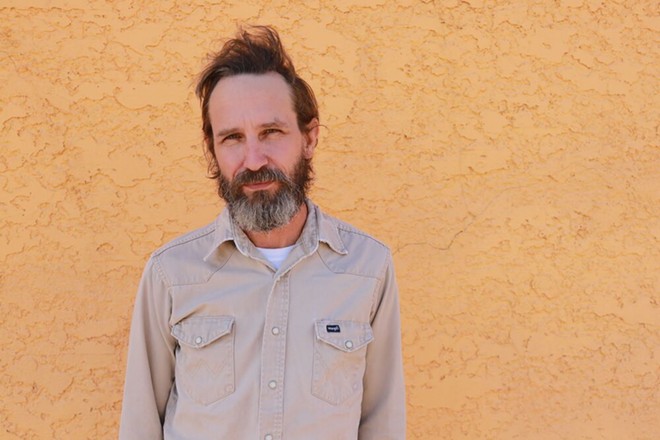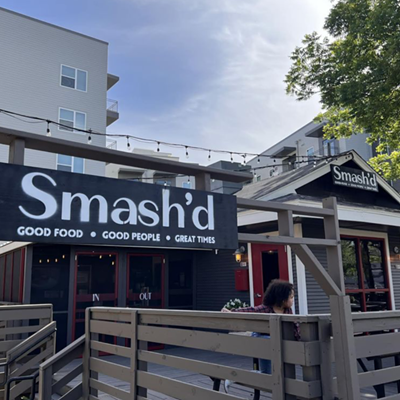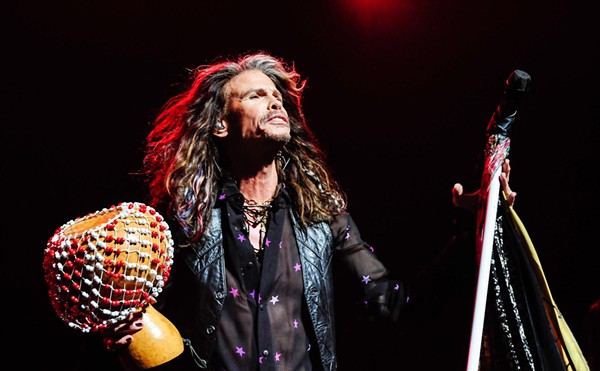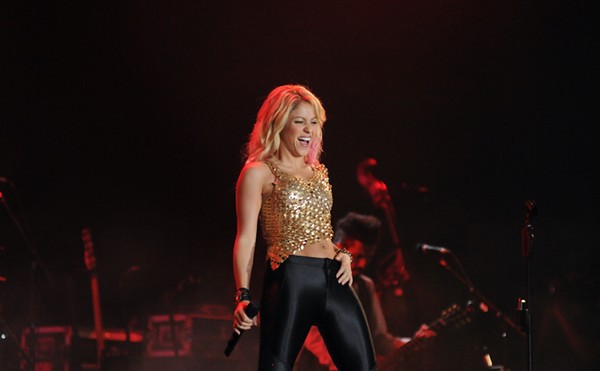
Will Johnson is both a musician's musician and a Texas indie-rock trailblazer.
Johnson, who started as a rock drummer, released dozens of albums over three decades in music. He initially found success as a lo-fi singer-songwriter and guitarist. Performing and recording under the moniker Centro-Matic, he released a spate of albums, EPs and singles. That Denton-based band eventually morphed into South San Gabriel, a quieter project with a revolving cast.
For the past 7 years, Johnson — now working out of a tiny town in Hays County — has been steadily releasing excellent albums under his own name, and he'll perform this music during a Saturday, Feb. 3, show at the Lonesome Rose.
Aside from his solo work, Johnson has initiated projects with many greats of modern indie music, including Vic Chestnutt, David Bazan, Jason Molina, Mark Eitzel and Jim James of My Morning Jacket. His visibility reached a new high when he joined indie songwriter supergroup Monsters of Folk, consisting of Conor Oberst, M. Mard, Mike Mogis and My Morning Jacket's James. From there, Johnson became drummer for Jason Isbell and the 400 Unit, one of the biggest names in Americana.
We spoke to Johnson recently over the phone. He dialed in from a frigid arena in Oklahoma, where he was waiting to perform with Isbell.
Staying warm?
I can't remember the last time I was warm. (Laughs.) I'm in Oklahoma City, and it's about 17 degrees out there. I'm in an arena, so hopefully the reception isn't terrible. I haven't done a ton of arena shows. This particular one is two nights at the Oklahoma City Thunder arena.
Seems like it'd be harder to play in front of a small group. In an arena the crowd becomes a faceless blob.
The faceless blob thing kind of helps, in a way. But yes, I find it more intense to play to 20 people in a living room.
You're among your peers at an intimate show.
A lot of the time. And there's nowhere to hide. It's intense for a reason. I like that energy. It throws everybody into a vulnerable situation based on trust. I like that energy and it's good for everybody.
Your life is like a battery with the plus and minus. Going back and forth from arena shows to intimate stuff.
(Laughs.) You're right. I think it's good to keep it switching up. I never wanna do one thing too long. Each experience teaches you something different, broadens your horizons a little bit. And you stick around long enough, you play in some exhilarating situations.
What are some of those for you?
Well, in 2009, I was involved in this project Monsters of Folk with some old friends. We were playing the Bridge School Benefit and Neil Young is standing there, shaking everybody's hands as they come off stage. That's a real honor. But also a couple times while we were playing I was like, "Just don't look left, he's over there. Just keep your head down and play your drums."
How did you start? Was music always in your bones?
When I was 3 or 4, I'd set up a drumset with cookie tins on the couch and wail away. When I was 9 or 10, my mother bit the bullet and bought me a $100 drumset. It was an early start. I lived in a small town in Missouri and there wasn't much to do — either sports, music or you got in trouble. There weren't a lot of options. I was obsessed from the start, wanted to know how records were made. Laying on the floor with record jackets sprawled out, looking at the artwork and the liner notes and the pictures, wondering where these things came from. That led to high school bands in Killeen, Texas, but the cool thing there was the proximity to Austin. A number of clubs would let me in at age 15, 16 or 17, so I cut my teeth playing at Liberty Lunch and Cannibal Club and Texas Union Ballroom, places that would let me in. I've been playing in bands my whole life.
I read Sheryl Crow was your babysitter.
Ha! Yeah. And her mom taught me piano. We lived a half mile from each other in the same small town in Missouri. She was also playing that Bridge School Show, so we caught up. It felt like seeing an old friend.
31 29
You started as a drummer, right?
Yeah, I was a drummer right out the gate. When I turned 24, that's when I got serious about songwriting. I was a late bloomer. I was just learning. It took me a little while.
When you adopt different monikers, does it open different portals of creativity?
Yes. Thinking of Centro-Matic and South San Gabriel, when we decided to do South San Gabriel, we were at a crossroads. Centro-Matic never changed in its 18 years, but we knew we wanted to collaborate, let other people in. We had all this extra, low-key, almost ambient stuff, [so] we let that be South San Gabriel, and Centro-Matic would be the rock band. So yeah, a lot of times it is based on that, adopting a different persona — exploring in different ways.
And now you use your own name. Got tired of introducing yourself?
(Laughs.) Maybe. I haven't overthought it. I'm letting Centro-Matic live as it is, and South San Gabriel too, and I feel we will come back to those.
How do you relate to Texas music?
Going back to childhood, there was so much Texas music that informed me. Of course, it could be Willie Nelson or Townes Van Zandt, but it could just as easily be the Butthole Surfers, Scratch Acid or Roky Erickson. There was such a wild beautiful music buffet going in Texas when I was young. I didn't pledge allegiance to a certain style. I was definitely into punk rock but also loved the diverse landscape. That was really important when I was 14, 15 years old, just figuring out who the hell you are in the world. And with access to Austin, I could go down and see great bands like the Reivers or True Believers. It was like a hole had been busted in the wall, that all music didn't have to be like FM rock, largely what was mainlined into our military community in Killeen. Van Halen or The Cars, great stuff, but you know... . You didn't have to be that polished to have a life in music. There was a great radio show on KLBJ, Critic's Choice. Jody Denberg did it. Every Sunday at 9. I had my two cassette recorders, and I'd record it as I went to sleep. That's the first place I heard the Minutemen, Hüsker Dü. And that's really informative stuff.
You ever play in the Alamodome? What's your experience of San Antonio?
(Laughs.) Not yet. We've played Sam's Burger Joint. That's always fun. For a while, I've only been doing living room shows in San Antonio — only about 40 people, all acoustic in someone's living room. I haven't done a venue show in San Antonio in 10, eleven years at least. I love that city so much. I've always loved San Antonio and really looking forward to being back.
$12, 9:15 p.m. Saturday, Feb. 3, Lonesome Rose, 2114 N. St. Mary's St., (210) 455-0233, thelonesomerose.com.
Subscribe to SA Current newsletters.
Follow us: Apple News | Google News | NewsBreak | Reddit | Instagram | Facebook | Twitter| Or sign up for our RSS Feed

















